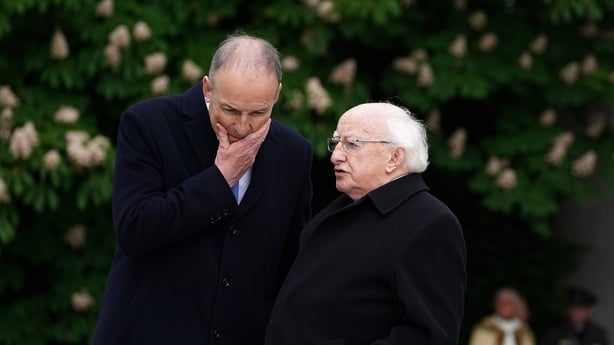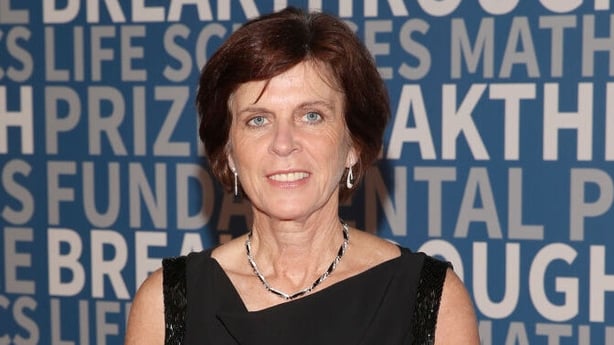A consultative forum is set to start a broad discussion on the State's foreign and security policy.
It gets under way this week with meetings in Cork, Galway and Dublin.
Here is what you need to know:
What's happening?
Tánaiste Micheál Martin, who is also Minister for Foreign Affairs and Defence, is holding what is called a Consultative Forum on International Security Policy.
There will be four meetings: the first will be held in Cork tomorrow; the next meeting will be in Galway on Friday; followed by two more meetings in Dublin on Monday and Tuesday of next week.
Multiple topics will be discussed on each day by the invited guests.
Members of the public can attend these meetings if they register. The events will also be screened online.
What’s the big idea?
The Tánaiste says he wants to build a deeper understanding of the international security environment facing the State, and the policy options available.
The topics range from cyber threats, our role in the United Nations, EU foreign policy, and Ireland's military neutrality.
The forum, he says, will be inclusive, informative, and consultative.
Micheál Martin argues that, in 2023, Ireland cannot isolate itself from the world - particularly when Russia has shown "blatant and brutal disregard" of international law when it invaded Ukraine.
What’s the problem?
For a start, President Michael D Higgins waded into the debate.
He told the Business Post that Ireland is "playing with fire" during a dangerous period of "drift" in its foreign policy.

The President said Ireland should avoid the "strutting and chest thumping" of those who espouse a "hold-me-back" version of Irish policy, and who want Ireland to "march at the front of the band" into military alliances such as NATO.
He levelled criticism at the forum, saying its panels were made up of "the admirals, the generals, the air force, the rest of it" as well as formerly neutral countries who are now joining NATO.
Is the President alone in his criticism?
No. Opposition parties like Sinn Féin, Labour and the Social Democrats have all defended the President's right to speak on the issue and expressed concern at the forum - questioning if there is an unwritten objective to dilute Irish neutrality.
People Before Profit and Solidarity have been the most vocal on the issue, with Richard Boyd Barrett contending that only one speaker had a record of advocating for neutrality while the rest of the panels were "packed to the rafters" with people who had either worked for NATO or were associated with the alliance.
UCD Assistant Professor Edward Burke described that claim as "disinformation".
How has the Government responded to the criticism from the President?
Both Taoiseach Leo Varadkar and Micheál Martin have insisted that Ireland will not be joining NATO or any other military alliance.
While not responding directly to the President’s remarks, both leaders have defended the forum saying of 18 panel discussions over the four days, only one is about NATO and only two are about neutrality.
They add that given that the forum is focused on international security it makes sense to have people who have served in both UN and EU operations in countries like Chad, Afghanistan, and Bosnia Herzegovina.
The former Labour senior advisor, Fergus Finlay, wrote in the Irish Examiner that the President was talking "terrible rubbish".
Why didn't they just hold a Citizens' Assembly?
The Tánaiste has said there already is a Citizens' Assembly on drug use and another is on its way.
A Government spokesperson told RTÉ News: "The Consultative Forum will draw on the principles underlying the Citizens’ Assembly model, but will be an open discussion which any member of the public can access or participate in.
The aim is to create a national conversation that is "informed and evidence based".
However, Sinn Féin's Matt Carthy was trenchant in his criticism, arguing this is a "blatant attempt to undermine" Ireland’s neutrality and the forum minimises the input of the public and opposition parties".
What’s going to be the biggest day?
All four days have topics which could be controversial, but the Friday meeting in Galway is certainly one to watch.
That’s when the consultative forum will consider Ireland’s triple-lock system - the three-stage process which must be followed before more than 12 Irish Defence Forces can be dispatched abroad.
Currently, a proposal for an overseas deployment must secure the backing of the Cabinet, the Dáil and the UN Security Council.
Fine Gael and Fianna Fáil have raised concerns that Russia’s permanent seat on the UN Security Council effectively gives Moscow a veto over any Irish deployment.
The Green Party has recently dropped its demand for the retention of the triple-lock.
Who is going to be on that panel?
The moderator is Renata Dwan who is a senior consulting fellow with Chatham House - the policy institute based in London, which is also known as the Royal Institute for International Affairs.
Ms Dwan used to work at the UN Institute for Disarmament Research and did field work in Afghanistan, the Democratic Republic of Congo, and Syria.

Speakers include retired Irish Defence Forces Major General Kieran Brennan; Prof Ray Murphy, Irish Centre for Human Rights at University of Galway; Declan Power, defence analyst and former soldier; and Shamala Kandiah Thompson, chief operating officer with the Security Council Report which "seeks to advance the transparency and effectiveness of the UN Security Council".
What’s the issue?
The Government argues there is no issue. It’s a topic which needs to be discussed given there has been no new peacekeeping missions approved by the UN Security Council since 2014, and Russia’s increasing use of its veto has limited the council's capacity to defend international peace and security.
Opposition politicians have expressed concern that the forum is going to come to a predetermined outcome - namely recommend that the triple-lock should be jettisoned.
The Labour Party has argued the forum's final report should come back to the Oireachtas for debate.
Sinn Féin has called for neutrality to be enshrined in the Constitution.
Who is going to chair the Consultative Forum?
It is Professor Louise Richardson, the Waterford born former vice-chancellor of the University of Oxford.
She was awarded her PhD from Harvard where she focused on terrorism and counterterrorism.
It is a pivotal position, as she doesn’t just chair the forum but also writes the final report for the Tánaiste.
She provoked the ire of President Higgins who commented: "And the person who’s in charge of this is a person with a very large DBE - Dame of the British Empire.
"I think it's grand, but you know I think that there were a few candidates I could have come up with myself."
The following day his office issued an apology: "The President intended no offence by such a casual remark.
"He apologies for any offence which he may have inadvertently caused to Prof Richardson by what was a throwaway remark."
It was the first time he had issued such an apology since taking the Presidential oath of office in 2011.







